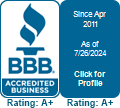Recordkeeping Part I – Organizational Records

When speaking about requirements for recordkeeping, nonprofits do differ from profit businesses. Each nonprofit organization should keep:
1. Organizational/Permanent Records
2. Financial Records.
In this article, we focus on the organizational/permanent records.
Organizational/Permanent Records: this includes all the paperwork that the organization should keep from the day of establishing the organization.
- Articles of Incorporation and/or Articles of Amendment – these are the exact approved articles by the Secretary of State. Most states provide free access to all organization’s filings (some states require you to register with them in order to access this information); in other states you need to request a copy of the submitted documentation;
- EIN – employer ID number/tax ID number – Upon 501c3 status approval, the EIN is used by the IRS to recognize the organization as tax-exempt;
- Corporate Bylaws – the initially adopted Bylaws with all the approved changes/modifications;
- Conflict of Interest Policy - The conflict of interest policy is a strategy that organizations should adopt as a means to establish procedures that will offer protection against charges of impropriety involving officers, directors or trustees;
- 501c3 Application/Application for recognition of tax-exempt status – this is the application you submit to the IRS to apply for tax-exemption;
- IRS determination letter of approval – the exact letter you receive upon approval. It consist of the name of the organization, mailing address, EIN, date of exemption, tax year end, public charity status, requirements for filing f990 and contribution deductibility;
- Board minutes & a List of Board of Directors - board minutes are essential for evaluating the organization’s way of work and for tracking all the organization’s meetings. However, the main purpose is to document how the decisions are made;
- Mission Statement/Program activities – it’s highly recommended your nonprofit keeps some records with explanation on the organization’s activities, consisting with information on when the activities are taking place, where, how often, target group, executors, and so on. Some nonprofit organizations prepare a business plan which brings much more detailed information on their exempt purpose and future plans for development.
- Solicitation Registration forms with the state – in order to be able to solicit funds, a lot of nonprofit organizations need to register with the state. Some states are exempt from filing. Other states like California require registration with Attorney General and CA Franchise Tax Board.
- Annual reports filed with the state – most states allow the organizations to renew their annual registration online. Even though it’s a simple form to fill in, the nonprofits should be aware of the deadlines, as there is an additional late filing fee;
- Additional documentation (optional): IRS acknowledgement letter; religious doctrines; insurance policy; program participants’ lists; pictures of events, various schedules of activities and plans of action, etc. The additional paperwork is in accordance with the nonprofit’s goals and exempt purpose.
The above documents can be classified as permanent records for the organization. The Board of Directors should present them to the IRS in case the nonprofit organization is being audited. Also most of these documents should be available for the public, such as the articles of incorporation / amendment. The program activities are usually listed on the organization’s website.





